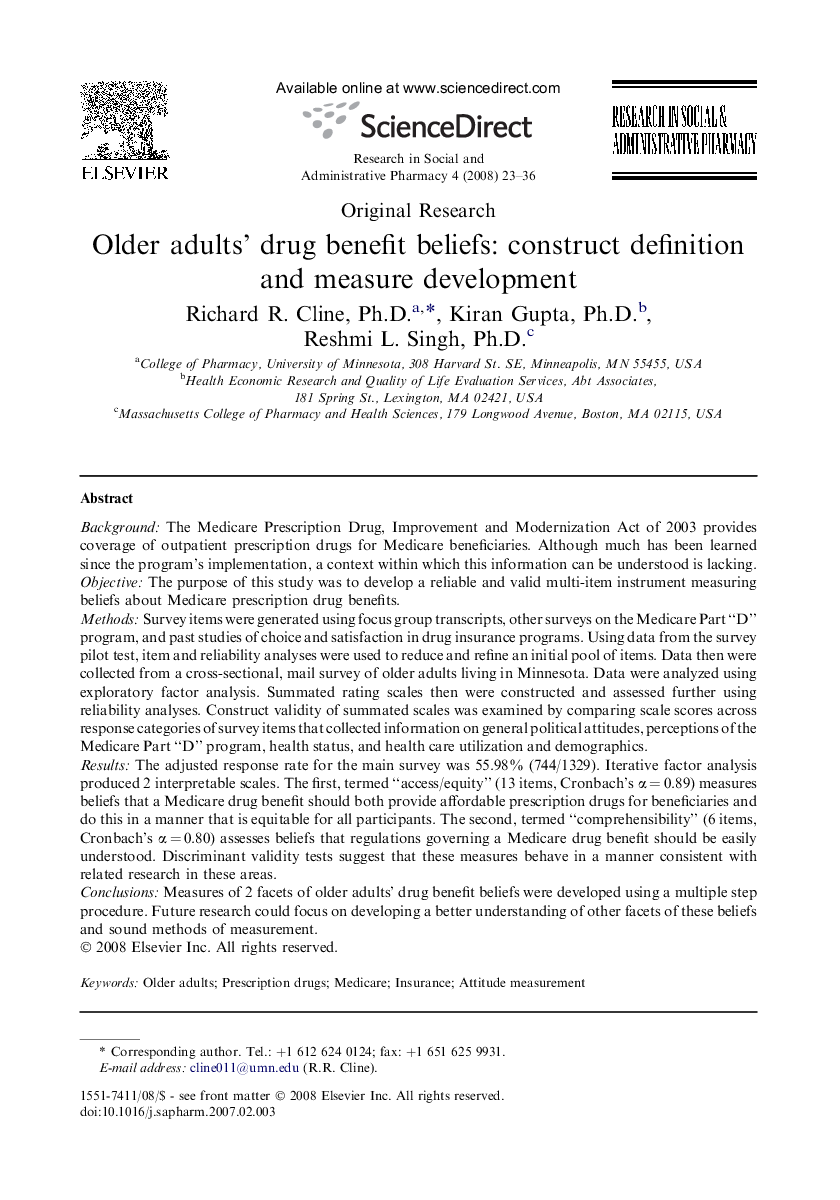| Article ID | Journal | Published Year | Pages | File Type |
|---|---|---|---|---|
| 2509178 | Research in Social and Administrative Pharmacy | 2008 | 14 Pages |
BackgroundThe Medicare Prescription Drug, Improvement and Modernization Act of 2003 provides coverage of outpatient prescription drugs for Medicare beneficiaries. Although much has been learned since the program's implementation, a context within which this information can be understood is lacking.ObjectiveThe purpose of this study was to develop a reliable and valid multi-item instrument measuring beliefs about Medicare prescription drug benefits.MethodsSurvey items were generated using focus group transcripts, other surveys on the Medicare Part “D” program, and past studies of choice and satisfaction in drug insurance programs. Using data from the survey pilot test, item and reliability analyses were used to reduce and refine an initial pool of items. Data then were collected from a cross-sectional, mail survey of older adults living in Minnesota. Data were analyzed using exploratory factor analysis. Summated rating scales then were constructed and assessed further using reliability analyses. Construct validity of summated scales was examined by comparing scale scores across response categories of survey items that collected information on general political attitudes, perceptions of the Medicare Part “D” program, health status, and health care utilization and demographics.ResultsThe adjusted response rate for the main survey was 55.98% (744/1329). Iterative factor analysis produced 2 interpretable scales. The first, termed “access/equity” (13 items, Cronbach's α = 0.89) measures beliefs that a Medicare drug benefit should both provide affordable prescription drugs for beneficiaries and do this in a manner that is equitable for all participants. The second, termed “comprehensibility” (6 items, Cronbach's α = 0.80) assesses beliefs that regulations governing a Medicare drug benefit should be easily understood. Discriminant validity tests suggest that these measures behave in a manner consistent with related research in these areas.ConclusionsMeasures of 2 facets of older adults' drug benefit beliefs were developed using a multiple step procedure. Future research could focus on developing a better understanding of other facets of these beliefs and sound methods of measurement.
